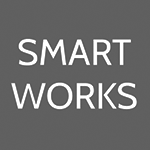TOP TIPS TO ENSURE YOUR RECRUITMENT AVOIDS THE PERILS OF UNCONSCIOUS BIAS
Firstly, we must fully understand what unconscious bias is.
Unconscious bias, put simply, is what happens when we act with our subconscious, which contains deeply ingrained biases, stereotypes and attitudes. Unconscious bias is triggered by our brain automatically making quick judgments and assessments. It can affect everyone, especially in the workplace by impactingour recruitment, employee progression and retention, impairing diversity and often promoting a disconnected culture.
So how can we avoid unconscious bias when recruiting? Here are our top tips…
- Acceptance – Bias is part of being human, by simply acknowledging this we can then address the challenges
- Look at your job descriptions – Without noticing we often see inherent gender bias right at the start of the recruitment process through the language we use every day. Masculine driven adjectives such as ‘competitive’ and ‘determined’ tend to put off female applications, and likewise ‘collaborative’ and ‘honest’ tend to be more attractive to female applicants. Take time with your job descriptions and don’t just replicate old adverts and wording.
- Consider blind CVs – We at Campbell & Fletcher Recruitment, have just completed a large recruitment project for a client whereby we managed a blind systematic process for reviewing applications and résumés for our client. This involved removing things such as race, nationality, gender, age and hobbies from CVs. We were able to deliver the most relevant shortlist of candidates for interview stage. Moreover, it is interesting to note that female applicants are less likely to shout about their own workplace achievements on their CVs.
- First impressions – When interviewing, it is believed that there is some merit in writing down your initial impressions of each candidate. This exercise enables you to evaluate and assess your own conscious bias at the end of the interview, and review and amend your first impressions. The aim must be to evaluate each candidate on their own merit and suitability to the job and avoiding comparing different candidates.
- Think about more structured interviews When it comes to interviews, it is often tempting to favour an unstructured session. However, research tells us that unstructured interviews can make it harder for the hiring manager to fairly benchmark candidates which may result in some unconscious bias creeping in. A structured process that tests all applicants the same way, or with the same questions helps reduce subjectivity and allows you to have direct comparisons.
- Set diversity goals Setting company wide recruitment diversity goals will give you clear data managed targets and complete clarity on your talent recruitment process.
Escaping unconscious bias completely when recruiting is basically impossible. However, by using the right tools and processes you can reduce its impact on your recruitment process.
At Campbell & Fletcher Recruitment we work with organisations to address unconscious bias and help them develop and maintain a fully inclusive workforce. If you would like to discuss how Campbell & Fletcher Recruitment can assist with your recruitment process, then contact us here.





